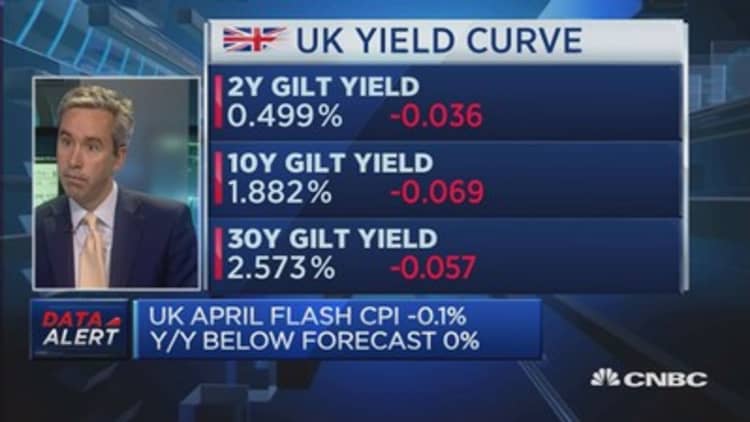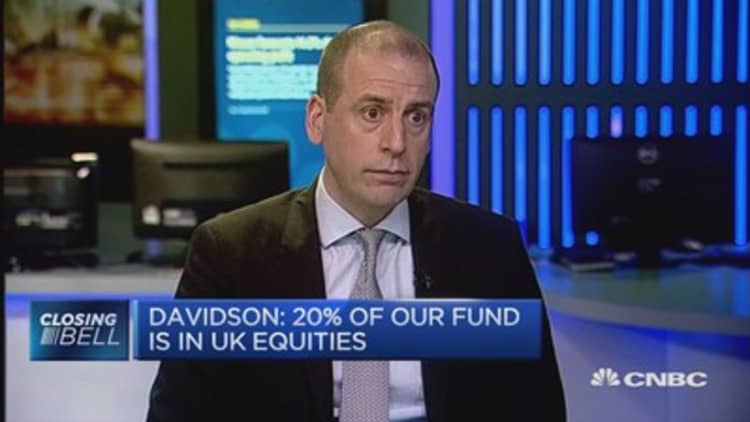
Annual consumer price inflation in the U.K. fell below zero for the first time since the 1960s, official data released on Tuesday showed.
Consumer prices fell 0.1 percent in April compared with the same month last year, the Office for National Statistics (ONS) said, adding that lower travel costs because Easter fell earlier this year had pushed prices down.
The ONS said that April marked the first time the consumer price index (CPI) was negative since official records began in 1996, and based on comparable estimates going back further, it was the first time the data showed deflation since 1960.
"I wouldn't worry too much about the data -- it was a question of timing about when we were going to get a deflation print," Henry Dickson, a fund manager at GLG, told CNBC following the data release.
"We are confident that while deflation may persist for one or two more months, fast forward six months and it will be very different picture indeed."
Read MoreBoE cuts UK economic growth forecasts on sterling strength
The Bank of England said last week that while inflation could turn negative in the near term, prices would pick up in the coming months.
Short-lived
A rebound in oil prices, wages and food prices should all help push prices higher later this year, analysts said, with the U.K. likely to avoid the persistent fall in prices that proved so damaging to Japan's economy in recent decades.
Don't forget, analysts added, a short period of falling prices can help boost consumer spending and provide overall boost to the economy.

"Deflation can be a chronic problem where it represents a lack of consumer confidence and an unwillingness to spend. This danger is very real in some parts of southern Europe, but is not even a distant threat in the U.K.," James Sproule, chief economist at the Institute of Directors, said in a note.
"While deflation does cause the cost of debt to rise in real terms, the benefits to the wider economy of a period of falling prices far outweigh any downsides."
Still, the headline inflation number sent sterling to a one-week low below $1.56. The pound also briefly fell against the euro as traders bet the negative inflation print would encourage the BoE to hold interest rates lower for longer than anticipated.
Read MoreFeel-good factor for sterling fading already?
Indeed, the annual rate of inflation is well below the BoE's 2-percent target. Prices rose 0.2 percent in April when measured on month-on-month terms.
Uncertainty
Markit Chief Economist, Chris Williamson, said that while the dip into deflation was unlikely to last long, there was greater uncertainty on the extent to which inflation may take off.
"A small uplift in inflation would be no bad thing, as it removes the threat of a deflationary mind-set becoming entrenched," he said in a note. "A more marked upturn in inflation is the bigger worry, as this will not only subdue consumer spending, removing the main driver of current economic growth, but also push the Bank of England into a more aggressive policy tightening."


